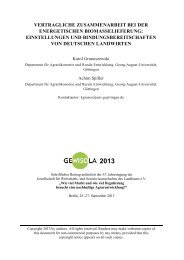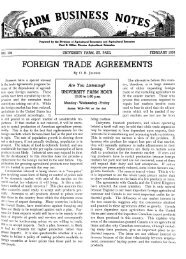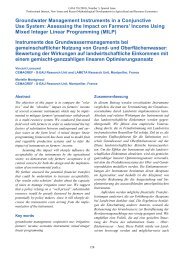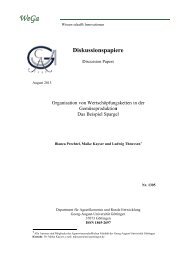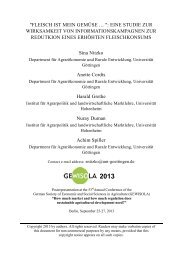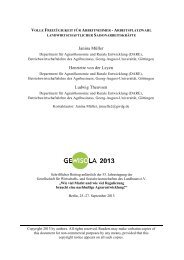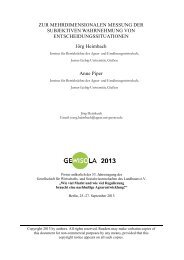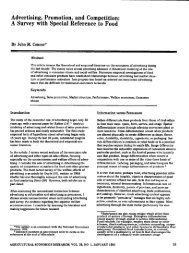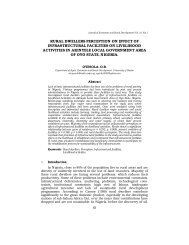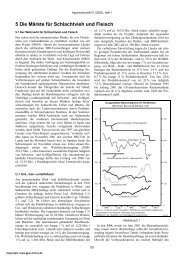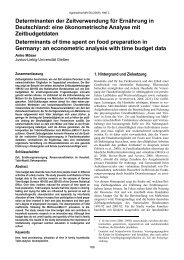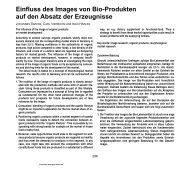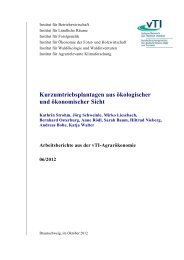District Institutes of Education and Training - Teacher Education
District Institutes of Education and Training - Teacher Education
District Institutes of Education and Training - Teacher Education
You also want an ePaper? Increase the reach of your titles
YUMPU automatically turns print PDFs into web optimized ePapers that Google loves.
<strong>District</strong> <strong>Institutes</strong> <strong>of</strong> <strong>Education</strong> <strong>and</strong> <strong>Training</strong>: A Comparative Study in Three Indian States<br />
9.1.3 Develops methods for building relationship with parents<br />
9.1.4 Develops different strategies for parents involvement for different<br />
activities<br />
9.1.5 Develops discussion skills to talk about progress reports to bright <strong>and</strong><br />
weak child’s parents<br />
9.1.6 Predicts <strong>and</strong> makes list <strong>of</strong> students who are about to leave the school<br />
9.1.7 Contacts parents whose child is absent in the school for 8-10 days or is<br />
about to leave the school<br />
9.1.8 Underst<strong>and</strong>s the importance <strong>of</strong> parents’ organisation<br />
9.1.9 Takes active part in parents’ meetings<br />
Year 1 Relationship with other institutes <strong>and</strong> society<br />
10.1.1 Underst<strong>and</strong>s the importance <strong>of</strong> relationship between school <strong>and</strong> society<br />
10.1.2 Develops skill for how to develop the relationship between school <strong>and</strong><br />
society<br />
10.1.3 By celebrating annual prog., national festivals <strong>and</strong> local festivals creates<br />
school as a central point for the society<br />
10.1.4 Underst<strong>and</strong>s the importance <strong>of</strong> relationship between school <strong>and</strong> village<br />
education committee.<br />
10.1.5 Underst<strong>and</strong>s the usefulness <strong>of</strong> other organisation’s work in education<br />
<strong>and</strong> visits them (panchayat, co-operatives, women’s organisation, other<br />
village organisations)<br />
10.1.6 Becomes aware <strong>of</strong> school <strong>and</strong> children’s problems<br />
10.1.7 Becomes familiar with one student’s development problems in practise<br />
school,visits student’s home <strong>and</strong> gives necessary information<br />
10.1.8 Develop the skill to celebrate local festivals in the village with villagers<br />
to get their social <strong>and</strong> economical support<br />
Box A2.2: Gujarat’s PTC past <strong>and</strong> present – views from the State<br />
1. Entry level to PTC Course was after 10th std, which resulted in less mature<br />
students, hence low underst<strong>and</strong>ing <strong>of</strong> their role as teachers.<br />
Entry level is now after 12th std. Relatively mature group <strong>of</strong> students who can<br />
underst<strong>and</strong> their true role as teachers keeping in mind the new potential-based<br />
curriculum.<br />
2. Optional stay in hostel leading to less interaction among students after<br />
college hours<strong>and</strong> less opportunity for group work <strong>and</strong> group living. This<br />
also prevents students from mentally preparing themselves for future outstation<br />
job transfers.<br />
Compulsory hostel stay provides more opportunity for after college interactions; gives<br />
students experience in group work <strong>and</strong> group living. The most important contribution<br />
will be mental preparation <strong>of</strong> the students for future out <strong>of</strong> station job transfers.<br />
DFID 227



